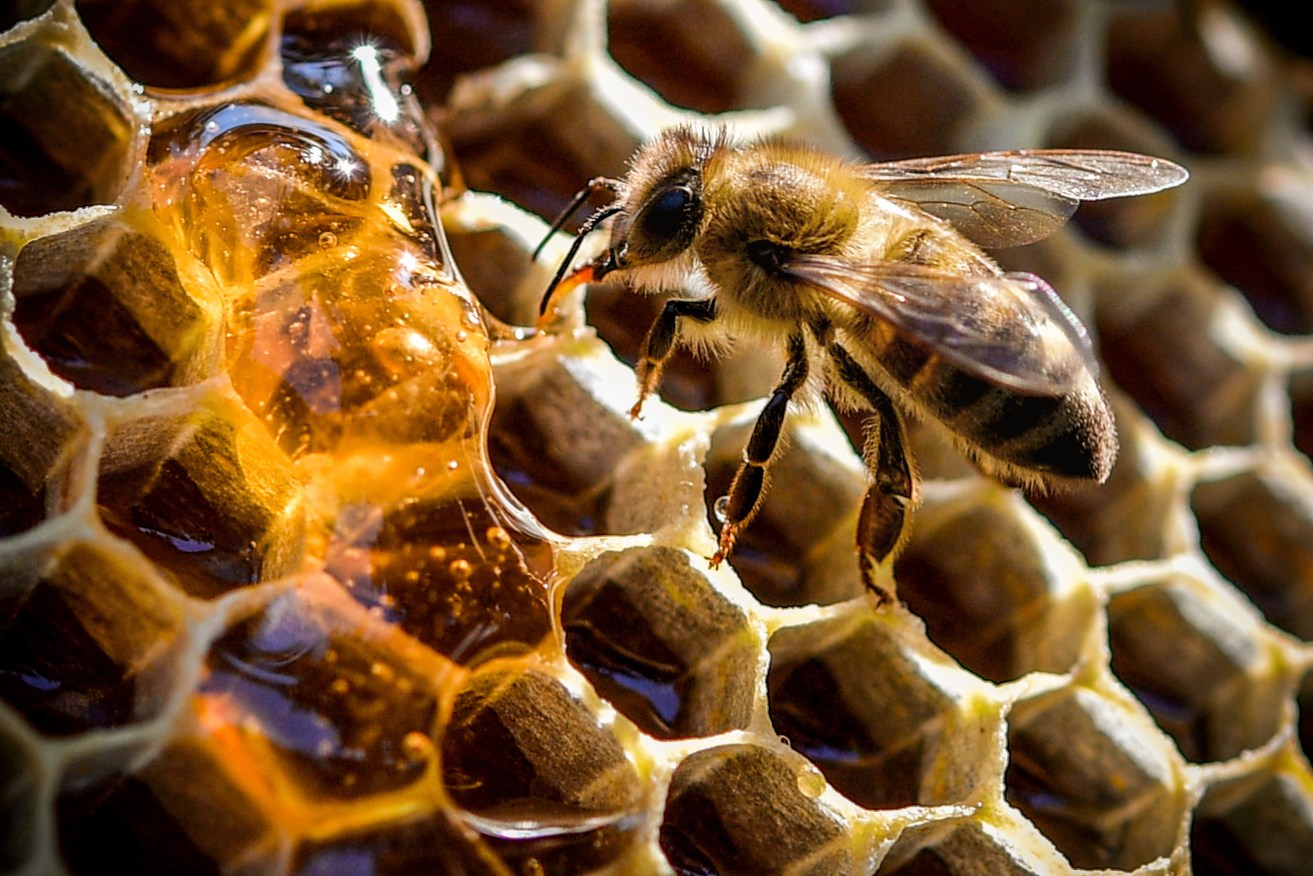Roundup weedkiller could be lethal to bees: research
Bees could be dying as a result of exposure to the world’s most popular weed killer, new research suggests.

Photo: EPA/Sascha Steinbach
Scientists found evidence that glyphosate, the active ingredient in Roundup, may be contributing to the decline of honey bees around the world.
The study shows that worker bees exposed to the weed killer lose beneficial gut bacteria.
This in turn is likely to leave the insects vulnerable to deadly infection by harmful bugs, the scientists believe.
Lead researcher Erick Motta, from the University of Texas, said: “We need better guidelines for glyphosate use, especially regarding bee exposure, because right now the guidelines assume bees are not harmed by the herbicide.
“Our study shows that’s not true.”
Glyphosate is generally thought to be non-toxic to animals, including humans and pollinating insects.
In the new study scientists exposed honey bees to glyphosate at levels known to occur in crop fields, gardens and road sides.
After three days, the exposed bees were found to have significantly reduced levels of healthy gut bacteria.
The scientists, whose results appear in the journal Proceedings of the National Academy of Sciences, urged farmers and home owners to avoid spraying glysophate herbicides on flowering plants likely to attract bees.
Glyphosate weed killer may be implicated in colony collapse disorder identified in North America and Europe, according to the researchers.
British expert Professor Dave Goulson, from the University of Sussex, said: “Those of us that study bees have long ago come to the conclusion that colony health is adversely affected by a number of interacting stressors, including exposure to cocktails of insecticides and fungicides, impacts of pathogens, and effects of poor nutrition.
“It now seems that we have to add glyphosate to the list of problems that they face.”
– PA




